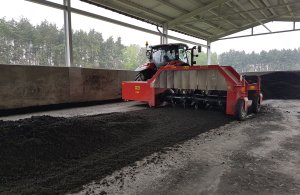AI as a tool to accelerate the Transition. (Credit: Alessio Ferretti on Unsplash)
Over the past 200 years, humans have developed an impressive industrial economy that has provided unprecedented prosperity, states an article on mckinsey.com. The result of our collective intelligence, this economy has been built by years of gradual improvement and is powered by new technologies. However, this system is in need of change to sustain rapid growth in the global middle class without being overwhelmed by negative environmental and social impacts..
A circular economy, in which growth is gradually decoupled from the consumption of finite resources, offers a response. Its principles are to design out waste and pollution, keep products and materials in use, and regenerate natural systems. The advantages of such an approach are substantial. For example, research shows that a circular economy in Europe can create a net benefit of €1.8 trillion by 2030, while addressing mounting resource-related challenges, creating jobs, spurring innovation, and generating environmental benefits.
The challenges and negative impacts of the current economic model are massive, cumulative, and set to grow in line with the global economy, which could almost double over the next 20 years. It is clear that we need new approaches and solutions to put us on an accelerated transition to a better model. New technologies, including faster and more agile learning processes with iterative cycles of designing, prototyping, and gathering feedback, are needed for the complex task of redesigning key aspects of our economy.
Artificial intelligence (AI) can play an important role in enabling this systemic shift. AI is a subset of the technologies enabling the emergent “Fourth Industrial Revolution” era, and deals with models and systems which perform functions generally associated with human intelligence, such as reasoning and learning. AI can complement people’s skills and expand their capabilities. It allows humans to learn faster from feedback, deal more effectively with complexity, and make better sense of abundant data. A growing number of initiatives are exploring how AI can create new opportunities to address some of the world’s most important challenges.










